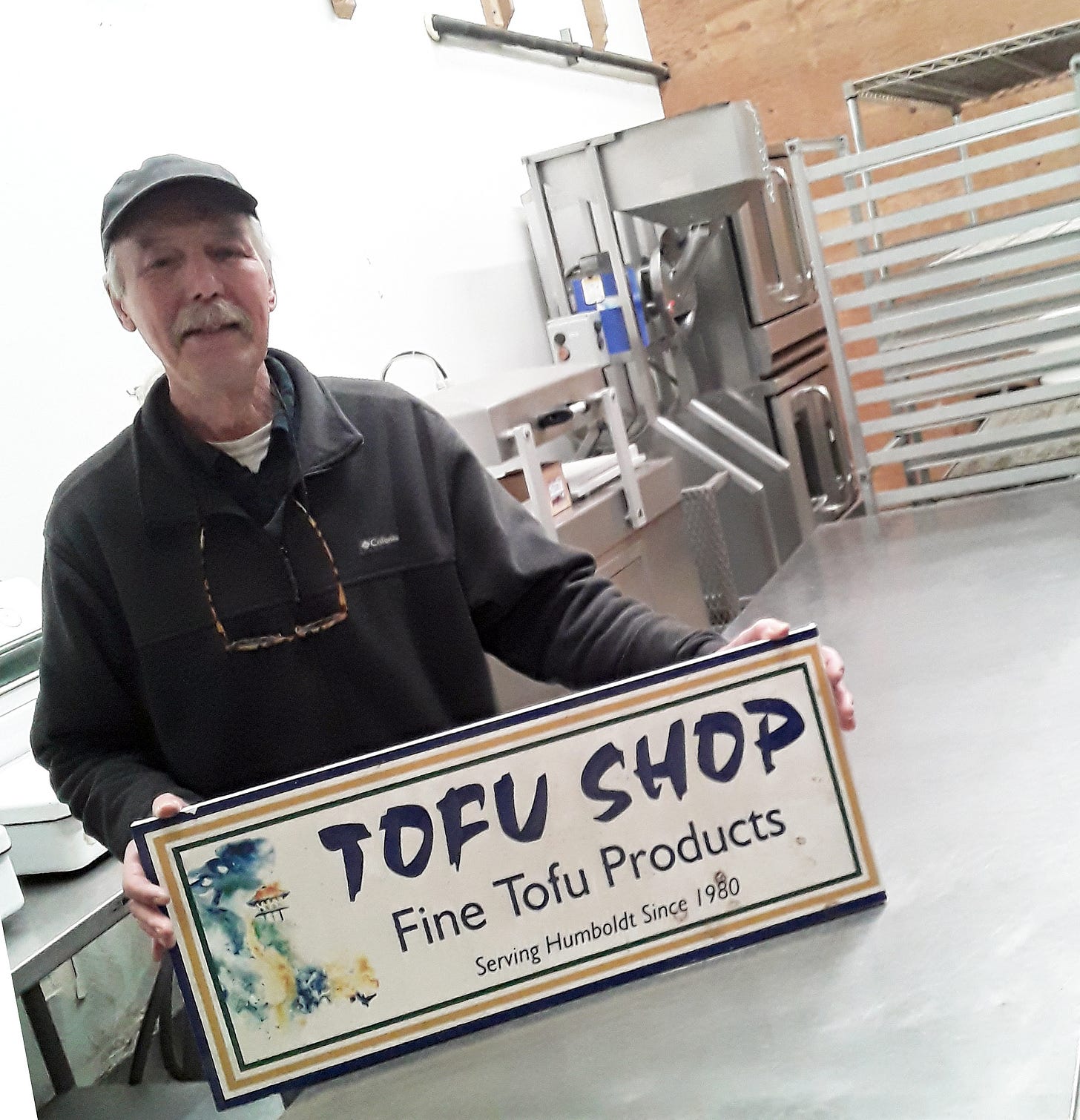Reporter: Steven Saint
Sources: Matthew Schmit (Tofu Shop), Wil Franklin (North Coast Small Business Development Center), Humboldt County Comprehensive Economic Development Strategy
Matthew Schmit sells off his kitchen equipment after shuttering The Tofu Shop.
The only movie theater in your town closed. The house down the street was listed for $799k but sold for $946k to Bay Area folks relocating. The District Attorney's office can't get any lawyers to move here and prosecute criminals – or defend the ones who can't afford an attorney. Good luck getting in to see a cardiologist, or buying tofu from the one guy in town who had been making it for 40 years.
What happened to that trimming job you promised me?
Humboldt's local economy is like a boat battered by one stormy wave after another. Some try to plug the leaks. Some learn to swim, while some keep looking for a rescue ship on the horizon. Some are trying to build a raft from the pieces.
Consider the following data from the recently approved Humboldt County Comprehensive Economic Development Strategy (an update of the 2018 plan, minus the catchy title, “Prosperity 2018!”):
• the shift to legal, regulated marijuana has significantly eroded the economic viability of what was previously the highest-producing region in the country
• our population is in decline, more than half attributed to out-migration
• housing costs are rising, with median monthly housing expenses increasing by nearly 27 percent in just five years
• wages are often not competitive with the rest of the state
For Matthew Schmit, long-time owner of The Tofu Shop, the statistics that matter most to small business are cost of production – labor, supplies and transportation. They've all been rising since the Covid pandemic and won't be going down any time soon, it seems. Schmit hoped to sell the business to a couple employees – who weren't able to secure financing. Now he hopes to sell the building he owns in the West End Road-area, and retire.
Controlling Cost of Goods Sold – including sourcing cheaper local ingredients rather than importing them, and automating to save on labor – was a focal point of the June Economic Resiliency Summit hosted by the North Coast Small Business Development Center (SBDC) in its new digs in Arcata. Adam Dick and Dustin Taylor of Dick Taylor Chocolates detailed the struggles of finding affordable cacao beans (prices have skyrocketed from $6,500 a ton to $18,000 in two years) and maintaining reasonable prices of their gourmet chocolate.
“My lens is ecological/biological,” says Wil Franklin, who taught college biology before becoming the local SBDC director. “This economic system obeys the same natural/universal rules that apply to all living systems.”
That means a local economy is “resilient” when it can quickly recover from upheaval or resist upheaval in the first place, Franklin says. Survival has a better chance when the economy is diverse, decentralized, interconnected to other local nodes and can tap more resources and reserves. Two of these conditions are also mentioned in the county's newly updated economic development plan: diversity and collaboration.
The choice may come down to getting back to normal or developing a new normal. One version of back to normal is finding a new extractive enterprise to save us. Humboldt had the Gold Rush in its first globalized economic model. When that went south, survivors turned to timber – with those who had provided the daily needs of miners finding new customers in loggers. When logging dried up, the region turned to what these economic planning documents call “alternative agriculture” – weed. That boom went bust with legalization, permitting and taxes.
Back to normal heralds offshore wind projects which could bring in lots of out-of-town investment and create thousands of jobs in engineering, construction, operations and maintenance. Tourism, an old-normal favorite, is also championed in the economic development strategy. The more out-of-towners who pass through, the more money flows into the coffers of local businesses. Ironically, the supervisors voted to stop funding the Humboldt County Visitors Bureau in April.
The new normal would require a paradigm shift, Franklin said, drawn from times past where humans survived without dollars. “We don't have to have an economic system based on growth. There are people in Humboldt that want to live more in the tribal narrative.”
A resilience based on local self-reliance would slow the hunt for outside money and focus on how locals can support each other in surviving and thriving. This approach has been pushed in the five-year-old Choose Humboldt campaign, a co-sponsor of the Economic Resilience Summit.
“I'm an anti-capitalist, but I'm also a small business owner,” Franklin says. “Small business owners need to create more immediate and local connections with suppliers, employees and customers.”






